#Lizzie Bradbury
Explore tagged Tumblr posts
Text
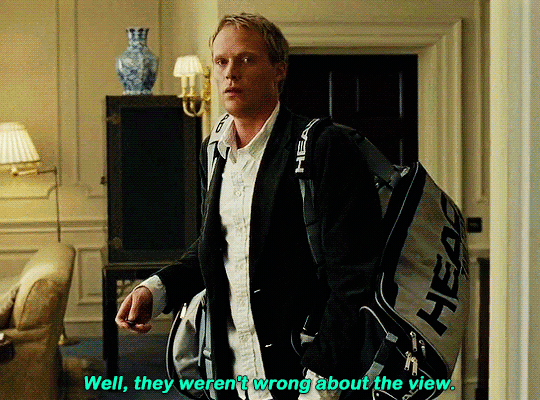










#i love a good meet cute#Wimbledon#movie#movies#filmedit#filmedits#rom com#romantic comedy#cute things#love#Lizzie Bradbury#Kirsten Dunst#Peter Colt#Paul Bettany#lizzie x peter#peter x lizzie#i love them#mood#relatable
79 notes
·
View notes
Text










HAPPY INTERNATIONAL WOMENS DAY
my fav woman in my fav shows
#queen maeve gifs#queen maeve#tory nichols gif#tory nichols#calliope burns#calliope burns gifs#lizzie stark#lizzie stark gifs#bonnie bennett gifs#bonnie bennett#eleven#eleven gifs#jules vaughn#jules vaughn gifs#emily prentiss#emily prentiss gifs#charlie bradbury#charlie bradbury gifs#kira yukimura#kira yukimura gifs#the boys#the boys gifs#first kill gifs#first kill#peaky blinders#peaky blinders gifs#cobra kai gifs#cobra kai#*mine: gifs#sapphicgifss
21 notes
·
View notes
Text
What is Ray Bradbury's The Halloween Tree? My Facebook post where I shared Ray Bradbury's The Halloween Tree artwork by Lizzy Rainey, received much positive response even from those unfamiliar with The Halloween Tree. There were many questions in the comments so I will explain The Halloween Tree here.

In 1966 Ray Bradbury (author of The Martian Chronicles, Fahrenheit 451, Something Wicked This way Comes) watched the now "Classic" Holiday special "It's the Great Pumpkin Charlie Brown." And much like myself, he didn't like it. I know you might be gasping. "An American obsessed with Halloween who doesn't like this seasonal classic?!" Well, I agree with Ray Bradbury. It's mean spirited. It's cynical. And I feel it lacks real charm or magick. And to quote Ray Bradbury "The Great Pumpkin never showed up." This bothered the great scifi and fantasy author more than anything else. Ray Bradbury came up with an idea for his own holiday special and he came very close to making it with famed animation icon, Chuck Jones. Those plans fell through and in 1972 Ray Bradbury published his planned holiday special as a novella.
It wouldn't be until 1993 that an animated adaptation of The Halloween Tree would finally be made. It aired on TBS and much like Over The Garden Wall it earned an Emmy award. It was a full length animated TV movie. The animated version was narrated by Ray Bradbury, himself. And it is pretty faithful to the novella despite leaving out some characters and stream lining some plot points. So what is The Halloween Tree about? Spoilers ahead! Well, it begins with a group of teenaged friends each preparing for Halloween trick or treating. They are all eager to meet up with their group leader, Joe Pipkin (known as Pip for short). The kids arrive at Joe Pipkin's house just in time to see an ambulance leave with their friend whose appendix has apparently ruptured. At first they are very upset but then they see their friend running through the moonlight (which seems to pass right through him). Believing he has pranked them, they give chase and follow him to a spooky old house. Here the children encounter a man named Mr. Moundshroud (voiced by Leonard Nemoy in the animated movie) who very likely is actually The Grim Reaper. Behind the house is a great tree with thousands upon thousands of Jack-o-lanterns. Each one representing the life of someone who died within the year. Joe Pipkin's ghost shows himself and snatches his own Jack-o-lantern and flees into a whirlwind representing a rip in space and time.
The children (Four in the animated version) and Moundshroud give chase to Ancient Egypt, Dark Ages England, Medieval Paris France, and mid-twentieth century Mexico. One by one the children learn the cultural influences that became modern American Halloween. And they figure out what is really going on with their friend. They each offer up a year from the end of their lives in exchange for Pipkin to live a full life into old age. Moundshroud is actually moved by the offer since the final years of one's life are the most precious and coveted. Moundshroud accepts their offer (or seems to. He may have always panned it to turn out this way) and Pipkin makes a full recovery.
21 notes
·
View notes
Text
WIMBLEDON- 2004 ⭐️⭐️⭐️⭐️⭐️

She's the golden girl. He's the longshot....
Tennis player Peter Colt (Paul Bettany) is bearly hanging in there at the end of his career. He enters his final Wimbledon tournament and falls for Lizzie Bradbury, womans tennis sensation. She ignites a spark in him and motivates him to play the best tennis of his career...
I've always loved this lovely romcom. It's lovely. Kirsten Dunst is invincible and Paul Bettanys a good guy? It's fun and extremely easy to watch. The tennis is fun there's real stakes. The romance is lovely and romantic. Wimbledon!
In conclusion this movie is totally sexy and what not. Fuck anyone who doesn't respect this movie.
Directed by Richard Loncraine.
2 notes
·
View notes
Text









[image id: nine screenshots of text on white or dark grey backgrounds.
1: “they punish those who love young / never right on time / watch each other fallin’ / always catch the call and / whistle while we’re walkin’ / something inside me dies”
2: “will took a step back as levi explained, settling down onto one knee and pulling the ring from his pocket. he could feel his heartbeat pounding in his ears, almost loud enough to drown out levi’s voice. but he held strong, drawing in a deep breath. “levi?” he asked. levi turned to face him, and his hands immediately went to cover his mouth “will—” he started, but will held up a hand. “please let me say this, i’ve been practicing for so long.”
3: “[chorus] because i’m still in love with you / i wanna see you dance again / because i’m still in love with you / on this harvest moon”
4: “love it when mild mannered repressed gay people see the love of their life being taken away by systems and forces and are like ok i’m gonna burn the world down actually”
5: “from the outer edge of his life, looking back, there was only one remorse, and that was only that he wished to go on living”
6: “[chorus] and you were one of the pure of heart, but / it didn’t help you none, no / there’s no telling our shapes apart when / the killing season comes / when the killing season comes”
7: “just the hebrew one. ‘lev’ means ‘heart’ and the ‘ee’ ending makes it possessive. so levi means ‘my heart’”
8: “and lot’s wife, of course, was told not to look back where all those people and their homes had been. but she did look back, and i love her for that, because it was so human. so she was turned into a pillar of salt. so it goes.”
9: “he can smell the wool of their suits, drenched in sweat by the end of their brief ceremony, the cologne levi was wearing, and the summer heat that enveloped them as they said their vows. he holds the two bands around his neck tightly, his eyes screwed shut. he can see his family’s smiling faces, watching him as he triumphantly walks down the aisle, hand in hand with levi. god, levi. the memory shifts to levi’s body on the ground, head surrounded in a halo of his own blood.” / end id.]
the lovers, separated by life and death
summertime, orville peck / @punkbarbarian / harvest moon, lord huron / @sightofsea / the illustrated man, ray bradbury / the killing season, lizzie no / @creacherkeeper / slaughterhouse-five, kurt vonnegut / @punkbarbarian
#finally posted this after thinking about it for approximately 3 weeks#anyways will and levi litstack be upon ye#talking#described#litstack#webweaving#c: lost township#will orville#will and levi
45 notes
·
View notes
Text










when the greatest tragedy is that the love wasn't lost at all
{sunnyscenegenerator / boot theory, richard siken / @paladinbaby / fragile things, neil gaiman / It’s Winter, I’m Not in Love Yet but I’d Like to Be, Dante Émile / @paladinbaby and @creacherkeeper / the illustrated man, ray bradbury / letters from medea, salma deera / housekeeping, marilynne robinson / balance, the mountain goats}
[ID: ten images of text in a litstack
1: The start is the problem, isn't it?
2: A man takes his sadness down to the river / and throws it in the river / but then he's still left with the river. / A man takes his sadness and throws it away / but then he's still left with his hands.
3: lizzie is right there and they already kinda think lizzie is a bitch and he's only just working out that he does actually actively care about lizzie.
4: The view changes from where you are standing. / Words can wound, and wounds can heal. All of these things are true.
5: What's your favorite song, do you prefer aisle or window, was your childhood lonely, how are your cats called, how many times have you broken your heart before, & would you like to do it again?
6: [discord screenshot] lev: i think that was the most anyone had talked to lizzie in 6 years
faun: noooooo / lukaaa
lev: i think on a like. particularly bad recovery day super sleep deprived because she was in too much pain to drift off she would've said that too
faun: I think onion replies with like this is the most I've talked about it since I left
7: And he listened to me. That was the thing he did, as if he was trying to fill himself up with all the sound he could hear. He listened to the wind and the falling ocean and my voice, always with rapt attention, a concentration that almost excluded physical bodies themselves and kept only the sounds.
8: ... The centre of every poem is this: I have loved you. I have had to deal with that.
9: The force behind the movement of time is mourning that will not be comforted.
10: Wet your finger, place it toward the wind / Feel disaster in the air / We are far too slow to outrun it now / But not too far gone to care
end ID]
#litstack#web weaving#quote collection#feeling sooooooo so normal about them#faun was like you should make a litstack too & then i was like fine if youre forcing my hand#and then i Relented To The Horrors (felt blorbo feelings)#onion and lizzie love each other :o) and everyone can see it but them#and that makes me feel well & alright & chill#lizzie losttownship#lost township
29 notes
·
View notes
Text
David Bamman was trying to analyze "Pride and Prejudice" — digitally. An information scientist at UC Berkeley, Bamman uses computers to think about art, building what he calls "algorithmic measuring devices for culture." That means extracting data from classic literature about things like, say, the relationships among various characters. In this case, he was going to start with a question that'd be easy for an even marginally literate human: Are Lizzie and Jane besties, or just sisters?
For kicks, Bamman decided to first try asking ChatGPT. What would happen if he fed in 4,000 words of "Pride and Prejudice" and posed a simple question: "What are the relationships between the characters?"
To his amazement, it worked. The chatbot's GPT-4 version was amazingly accurate about the Bennet family tree. In fact, it was almost as if it had studied the novel in advance. "It was so good that it raised red flags in my mind," Bamman says. "Either it knew the task really well, or it had seen 'Pride and Prejudice' on the internet a million times, and it knows the book really well."
The problem is, there was no way of knowing how GPT-4 knew what it knew. The inner workings of the large language models at the heart of a chatbot are a black box; the datasets they're trained on are so critical to their functioning that their creators consider the information a proprietary secret. So Bamman's team decided to become "data archaeologists." To figure out what GPT-4 has read, they quizzed it on its knowledge of various books, as if it were a high-school English student. Then they gave it a score for each book. The higher the score, the likelier it was that the book was part of the bot's dataset — not just crunched to help the bot generate new language, but actually memorized.
In a recent preprint, meaning it hasn't been peer reviewed yet — the team presented its findings — what amounts to an approximation of the chatbot canon. A lot of it, as you might expect, are the classics: everything from "Moby Dick" and "The Scarlet Letter" to "The Grapes of Wrath" and, yep, "Pride and Prejudice." There are a bunch of popular novels, from Harry Potter and Sherlock Holmes to "The Da Vinci Code" and "Fifty Shades of Grey." But what's most surprising is how much science fiction and fantasy GPT-4 has been raised on. The list is staggering: J.R.R. Tolkien, Ray Bradbury, William Gibson, Orson Scott Card, Philip K. Dick, Margaret Atwood, "A Game of Thrones," even "The Hitchhiker's Guide to the Galaxy."
The question of what's on GPT-4's reading list is more than academic. Bots aren't intelligent. They don't understand the world in any way a human can. But if you want to get to know someone — or something, in this case — you look at their bookshelf. Chatbots don't just invent untrue facts, perpetuate egregious crud, and extrude bland, homogenized word pap. It turns out they're also giant nerds.
The Silmarillion. Really?
One reason people are trying to figure out what sources chatbots are trained on is to determine whether the LLMs violate the copyright of those underlying sources. The issue, as several lawsuits argue, revolves around whether the bots make fair use of the material by transforming into something new, or whether they just memorize it whole and regurgitate it, without citation or permission.
One way to answer the question is to look for information that could have come from only one place. When prompted, for example, a GPT-3 writing aid called Sudowrite recognizes the specific sexual practices of a genre of fan-fiction writing called the Omegaverse. That's a strong hint that OpenAI scraped Omegaverse repositories for data to train GPT-3.
Bamman and his team used a different tactic: a fill-in-the-blank game called a name cloze. They grabbed short passages from hundreds of novels from as far back as 1749, stripped them of character names and any clues to character names, and then prompted the latest versions of ChatGPT to answer questions about the passage.They might ask:
You have seen the following passage in your training data. What is the proper name that fills in the [MASK] token in it? This name is exactly one word long, and is a proper name (not a pronoun or any other word). You must make a guess, even if you are uncertain.
Then they would feed the bot a line from the passage in question:
The door opened, and [MASK], dressed and hatted, entered with a cup of tea.
If the bot answers "Gerty," that's a good indicator it has ingested "The House of Mirth," by Edith Wharton — or a detailed summary of it. Show the bot 100 samples from a given book and see how many it gets right. That's the book's score.
After crunching the numbers, Bamman's team had a list. In addition to the modern public-school canon — Charles Dickens and Jack London, Frankenstein and Dracula — there are a few fun outliers. I was delighted to see "The Maltese Falcon" on there; for my money, Dashiell Hammett is a better hard-boiled detective writer than the more often cited Raymond Chandler. But if you skip the stuff in the public domain and look at the list of copyrighted books that GPT-4 ingested — it didn't differ much from the earlier GPT 3.5 — the bot's true character emerges. Sure, "The Fellowship of the Ring" weighs in at No. 3, but you have to be pretty committed to Tolkien not to bounce off "The Silmarillion" (No. 9). "Do Androids Dream of Electric Sheep?" comes in at No. 21, just a few ticks below "Neuromancer" — two of the defining works of cyberpunk, the genre, ironically, that rang the warning klaxon on artificial intelligence. Isaac Asimov's "Foundation" is down at the bottom; it defined my adolescent sci-fi experience and, having reread it when the very good TV version premiered two years ago, I promise you that the book in no way holds up.
Generally, though? The list, it me. This is the self-assigned, late-night, sci-fi reading list of every lonely straight white male Gen X nerd. The question is: Does that matter? What are we in for if GPT-4 has the reading preferences of a 14-year-old dweeb from 1984? (Including, as it happens, "1984," at No. 2?)
What AI reads matters
GPT-4's database is ginormous — up to a petabyte, by some accounts. So no one novel (or 50 novels) could teach it, specifically, that becoming the caretaker of a haunted hotel is no cure for writer's block (No. 49), or that fear is the mind-killer (No. 13). The ocean of data swamps the islands of fiction. "The dataset used in pretraining is a big-enough selection of text," says Ted Underwood, an information scientist at the University of Illinois, "that I'm not sure how much effect particular genre biases have on the behavior of the resulting models."
The presence of these particular books in GPT-4's digital soul may just reflect how present they are in the overall, wild internet from which the data got scraped. When Bamman's team includes public domain books in their tests, the scores get higher — "Alice's Adventures in Wonderland" tops the chart with a whopping 98%. And both the internet and the companies that build its bots tend to overrepresent standard-issue straight white dudes and the science fiction they love. Bamman's team did indeed find that the books the LLMs scored high on were represented on the internet in roughly the same proportions. That makes sense. The chatbots didn't choose their books. Internet culture did.
Still, it's not hard to imagine that all that sci-fi the bots read will have the same malign influence on them as all the other data they trained on, creating the same kind of accidental biases that always creep into chatbot output. Sometimes they say racist stuff. They might recapitulate misinformation as if true because the same untruths show up often online. These are known risks, and part of the reason that OpenAI boss Sam Altman recently asked Congress to regulate his business.
"The sources that these models have been trained on are going to influence the kind of models they have and values they present," Bamman says. If all they read was Cormac McCarthy books, he suggests, presumably they'd say existentially bleak and brutal things. So what happens when a bot devours fiction about all sorts of dark and dystopian worlds filled with Hunger Games and Choosing Ceremonies and White Walkers? "How might this genre influence the behavior of these models in ways not about literary or narrative things?" Bamman says. "There's a lot of interesting work to be done there. But I don't think we have the answer to that question yet."
As a sci-fi nerd myself, I'll take a stab at an answer. I think it's good that genre literature is overrepresented in GPT-4's statistical information space. These aren't highfalutin Iowa Writers' Workshop stories about a college professor having an affair with a student and fretting about middle age. Genre — sci-fi, mystery, romance, horror — is, broadly speaking, more interesting, partially because these books have plots where things actually happen. Bamman's GPT-4 list is a Borgesian library of episodic connections, cliffhangers, third-act complications, and characters taking arms against seas of troubles (and whales).
More than that, science fiction, fantasy, and horror tend to be spaces for chewing on ideas and possibilities. "Dune" is about religion and the politics of revolution. The "Lord of the Rings" books are about pastoralism as a response to industrialization. "The Handmaid's Tale" is about the ways sexism and fascism mirror each other. I could go on. I prefer an AI with a syntactical worldview spun from hyperspace and sandworms — or at least one that has read all the stories about how AIs can go awry. That said, I'd sure like to see a more diverse canon represented. Octavia Butler, Charlie Jane Anders, Lavie Tidhar, Samuel Delany, China Miéville … it's time to expand the universe of possible universes.
The books we humans read change what we think about our world. But technically, chatbots don't think about anything. They build statistical and vector relationships among words. Who cares whether those words are science-fictional? "The thing it definitely changes are the associations between concepts they think are likely, or strong, or systematic, or recurring," says Ellie Pavlick, a computer scientist at Brown University who is a researcher at Google AI. "The question is, what is their worldview? In a simple sense, it's associations between words and concepts. But that's still going to be different based on what they read."
Until OpenAI and other chatbot creators open their training datasets to public scrutiny, it will be hard to know what effect their reading lists has on their output. "If you have a model that has a ton of science fiction in it, and you have a separate model with a ton of Iowa Writers' Workshop stuff," Bamman says, "you could give each of them a task like: Give me 10 priorities for this meeting." Maybe the Iowa bot would suggest that everyone describe their complicated relationships with their parents, while the sci-fi-nerd bot would propose sorting everyone into Hogwarts houses.
Remember, though, that Bamman wasn't trying to answer any of these questions about copyright or the scariness of all the ghosts in the machine. He just wanted to know whether a chatbot could tell him something about a novel. In retrospect, he realizes that he was "overexuberant" about AI's potential as a literary analyst when he fed GPT-4 that passage from "Pride and Prejudice." Ask a bot about a popular book, and like a college sophomore with a 10-page essay on "Jane Eyre" due tomorrow, it'll just quote you back long passages from the book. It's vomiting up words, not searching for insight.
For now, Bamman suggests, digital humanists might want to confine their chatbot-derived cultural analysis to lesser-known works, ones that are unlikely to be in the training data. See what a bot makes of Gene Wolfe's "The Book of the New Sun," maybe, or Sheri Tepper's "Grass." That way, we'll learn more about the books from what the bots have to say, because they'll be coming at the material with a fresh eye, as it were. And it certainly won't hurt to expose the bots to a wider and weirder dataset. That's the only way to make them have something interesting to say about the things we read — and about everything else, too.
0 notes
Text
David Bamman was trying to analyze "Pride and Prejudice" — digitally. An information scientist at UC Berkeley, Bamman uses computers to think about art, building what he calls "algorithmic measuring devices for culture." That means extracting data from classic literature about things like, say, the relationships among various characters. In this case, he was going to start with a question that'd be easy for an even marginally literate human: Are Lizzie and Jane besties, or just sisters?
For kicks, Bamman decided to first try asking ChatGPT. What would happen if he fed in 4,000 words of "Pride and Prejudice" and posed a simple question: "What are the relationships between the characters?"
To his amazement, it worked. The chatbot's GPT-4 version was amazingly accurate about the Bennet family tree. In fact, it was almost as if it had studied the novel in advance. "It was so good that it raised red flags in my mind," Bamman says. "Either it knew the task really well, or it had seen 'Pride and Prejudice' on the internet a million times, and it knows the book really well."
The problem is, there was no way of knowing how GPT-4 knew what it knew. The inner workings of the large language models at the heart of a chatbot are a black box; the datasets they're trained on are so critical to their functioning that their creators consider the information a proprietary secret. So Bamman's team decided to become "data archaeologists." To figure out what GPT-4 has read, they quizzed it on its knowledge of various books, as if it were a high-school English student. Then they gave it a score for each book. The higher the score, the likelier it was that the book was part of the bot's dataset — not just crunched to help the bot generate new language, but actually memorized.
In a recent preprint, meaning it hasn't been peer reviewed yet — the team presented its findings — what amounts to an approximation of the chatbot canon. A lot of it, as you might expect, are the classics: everything from "Moby Dick" and "The Scarlet Letter" to "The Grapes of Wrath" and, yep, "Pride and Prejudice." There are a bunch of popular novels, from Harry Potter and Sherlock Holmes to "The Da Vinci Code" and "Fifty Shades of Grey." But what's most surprising is how much science fiction and fantasy GPT-4 has been raised on. The list is staggering: J.R.R. Tolkien, Ray Bradbury, William Gibson, Orson Scott Card, Philip K. Dick, Margaret Atwood, "A Game of Thrones," even "The Hitchhiker's Guide to the Galaxy."
The question of what's on GPT-4's reading list is more than academic. Bots aren't intelligent. They don't understand the world in any way a human can. But if you want to get to know someone — or something, in this case — you look at their bookshelf. Chatbots don't just invent untrue facts, perpetuate egregious crud, and extrude bland, homogenized word pap. It turns out they're also giant nerds.
The Silmarillion. Really?
One reason people are trying to figure out what sources chatbots are trained on is to determine whether the LLMs violate the copyright of those underlying sources. The issue, as several lawsuits argue, revolves around whether the bots make fair use of the material by transforming into something new, or whether they just memorize it whole and regurgitate it, without citation or permission.
One way to answer the question is to look for information that could have come from only one place. When prompted, for example, a GPT-3 writing aid called Sudowrite recognizes the specific sexual practices of a genre of fan-fiction writing called the Omegaverse. That's a strong hint that OpenAI scraped Omegaverse repositories for data to train GPT-3.
Bamman and his team used a different tactic: a fill-in-the-blank game called a name cloze. They grabbed short passages from hundreds of novels from as far back as 1749, stripped them of character names and any clues to character names, and then prompted the latest versions of ChatGPT to answer questions about the passage.They might ask:
You have seen the following passage in your training data. What is the proper name that fills in the [MASK] token in it? This name is exactly one word long, and is a proper name (not a pronoun or any other word). You must make a guess, even if you are uncertain.
Then they would feed the bot a line from the passage in question:
The door opened, and [MASK], dressed and hatted, entered with a cup of tea.
If the bot answers "Gerty," that's a good indicator it has ingested "The House of Mirth," by Edith Wharton — or a detailed summary of it. Show the bot 100 samples from a given book and see how many it gets right. That's the book's score.
After crunching the numbers, Bamman's team had a list. In addition to the modern public-school canon — Charles Dickens and Jack London, Frankenstein and Dracula — there are a few fun outliers. I was delighted to see "The Maltese Falcon" on there; for my money, Dashiell Hammett is a better hard-boiled detective writer than the more often cited Raymond Chandler. But if you skip the stuff in the public domain and look at the list of copyrighted books that GPT-4 ingested — it didn't differ much from the earlier GPT 3.5 — the bot's true character emerges. Sure, "The Fellowship of the Ring" weighs in at No. 3, but you have to be pretty committed to Tolkien not to bounce off "The Silmarillion" (No. 9). "Do Androids Dream of Electric Sheep?" comes in at No. 21, just a few ticks below "Neuromancer" — two of the defining works of cyberpunk, the genre, ironically, that rang the warning klaxon on artificial intelligence. Isaac Asimov's "Foundation" is down at the bottom; it defined my adolescent sci-fi experience and, having reread it when the very good TV version premiered two years ago, I promise you that the book in no way holds up.
Generally, though? The list, it me. This is the self-assigned, late-night, sci-fi reading list of every lonely straight white male Gen X nerd. The question is: Does that matter? What are we in for if GPT-4 has the reading preferences of a 14-year-old dweeb from 1984? (Including, as it happens, "1984," at No. 2?)
What AI reads matters
GPT-4's database is ginormous — up to a petabyte, by some accounts. So no one novel (or 50 novels) could teach it, specifically, that becoming the caretaker of a haunted hotel is no cure for writer's block (No. 49), or that fear is the mind-killer (No. 13). The ocean of data swamps the islands of fiction. "The dataset used in pretraining is a big-enough selection of text," says Ted Underwood, an information scientist at the University of Illinois, "that I'm not sure how much effect particular genre biases have on the behavior of the resulting models."
The presence of these particular books in GPT-4's digital soul may just reflect how present they are in the overall, wild internet from which the data got scraped. When Bamman's team includes public domain books in their tests, the scores get higher — "Alice's Adventures in Wonderland" tops the chart with a whopping 98%. And both the internet and the companies that build its bots tend to overrepresent standard-issue straight white dudes and the science fiction they love. Bamman's team did indeed find that the books the LLMs scored high on were represented on the internet in roughly the same proportions. That makes sense. The chatbots didn't choose their books. Internet culture did.
Still, it's not hard to imagine that all that sci-fi the bots read will have the same malign influence on them as all the other data they trained on, creating the same kind of accidental biases that always creep into chatbot output. Sometimes they say racist stuff. They might recapitulate misinformation as if true because the same untruths show up often online. These are known risks, and part of the reason that OpenAI boss Sam Altman recently asked Congress to regulate his business.
"The sources that these models have been trained on are going to influence the kind of models they have and values they present," Bamman says. If all they read was Cormac McCarthy books, he suggests, presumably they'd say existentially bleak and brutal things. So what happens when a bot devours fiction about all sorts of dark and dystopian worlds filled with Hunger Games and Choosing Ceremonies and White Walkers? "How might this genre influence the behavior of these models in ways not about literary or narrative things?" Bamman says. "There's a lot of interesting work to be done there. But I don't think we have the answer to that question yet."
As a sci-fi nerd myself, I'll take a stab at an answer. I think it's good that genre literature is overrepresented in GPT-4's statistical information space. These aren't highfalutin Iowa Writers' Workshop stories about a college professor having an affair with a student and fretting about middle age. Genre — sci-fi, mystery, romance, horror — is, broadly speaking, more interesting, partially because these books have plots where things actually happen. Bamman's GPT-4 list is a Borgesian library of episodic connections, cliffhangers, third-act complications, and characters taking arms against seas of troubles (and whales).
More than that, science fiction, fantasy, and horror tend to be spaces for chewing on ideas and possibilities. "Dune" is about religion and the politics of revolution. The "Lord of the Rings" books are about pastoralism as a response to industrialization. "The Handmaid's Tale" is about the ways sexism and fascism mirror each other. I could go on. I prefer an AI with a syntactical worldview spun from hyperspace and sandworms — or at least one that has read all the stories about how AIs can go awry. That said, I'd sure like to see a more diverse canon represented. Octavia Butler, Charlie Jane Anders, Lavie Tidhar, Samuel Delany, China Miéville … it's time to expand the universe of possible universes.
The books we humans read change what we think about our world. But technically, chatbots don't think about anything. They build statistical and vector relationships among words. Who cares whether those words are science-fictional? "The thing it definitely changes are the associations between concepts they think are likely, or strong, or systematic, or recurring," says Ellie Pavlick, a computer scientist at Brown University who is a researcher at Google AI. "The question is, what is their worldview? In a simple sense, it's associations between words and concepts. But that's still going to be different based on what they read."
Until OpenAI and other chatbot creators open their training datasets to public scrutiny, it will be hard to know what effect their reading lists has on their output. "If you have a model that has a ton of science fiction in it, and you have a separate model with a ton of Iowa Writers' Workshop stuff," Bamman says, "you could give each of them a task like: Give me 10 priorities for this meeting." Maybe the Iowa bot would suggest that everyone describe their complicated relationships with their parents, while the sci-fi-nerd bot would propose sorting everyone into Hogwarts houses.
Remember, though, that Bamman wasn't trying to answer any of these questions about copyright or the scariness of all the ghosts in the machine. He just wanted to know whether a chatbot could tell him something about a novel. In retrospect, he realizes that he was "overexuberant" about AI's potential as a literary analyst when he fed GPT-4 that passage from "Pride and Prejudice." Ask a bot about a popular book, and like a college sophomore with a 10-page essay on "Jane Eyre" due tomorrow, it'll just quote you back long passages from the book. It's vomiting up words, not searching for insight.
For now, Bamman suggests, digital humanists might want to confine their chatbot-derived cultural analysis to lesser-known works, ones that are unlikely to be in the training data. See what a bot makes of Gene Wolfe's "The Book of the New Sun," maybe, or Sheri Tepper's "Grass." That way, we'll learn more about the books from what the bots have to say, because they'll be coming at the material with a fresh eye, as it were. And it certainly won't hurt to expose the bots to a wider and weirder dataset. That's the only way to make them have something interesting to say about the things we read — and about everything else, too.
0 notes
Text
Assistir Filme Wimbledon - O Jogo do Amor Online fácil
Assistir Filme Wimbledon - O Jogo do Amor Online Fácil é só aqui: https://filmesonlinefacil.com/filme/wimbledon-o-jogo-do-amor/
Wimbledon - O Jogo do Amor - Filmes Online Fácil

Peter Colt é um tenista que ocupa uma posição bastante baixa no ranking mundial de tenistas. Em uma colocação baixa demais para participar do torneio de Wimbledon, ele recebe um convite dos organizadores para que possa disputar a que pode ser a última competição de sua carreira. Porém, após conhecer Lizzie Bradbury, a mais nova estrela do tênis feminino, Colt ganha novo fôlego para disputar o título da competição.
0 notes
Text







#love#Wimbledon#movie#movies#filmedit#filmedits#rom com#romantic comedy#i love you#cute things#my heart#hug#hugs#hugging#Kirsten Dunst#Lizzie Bradbury#Paul Bettany#Peter Colt#peter x lizzie#lizzie x peter
44 notes
·
View notes
Text
Ray Bradbury's The Halloween Tree artwork by Lizzy Rainey.
"A pumpkin tree," someone said.
"No," said Tom.
The wind blew among the high branches and tossed their bright burdens, softly.
"A Halloween Tree," said Tom.
And he was right.”
“…Too much kindness flashed from every window and every portal. What they wanted was to hear dragons belch in basements and banged castle doors.”
-Ray Bradbury, “The Halloween Tree” (1972)



14 notes
·
View notes
Photo





Then I Saw You .. ^^
#Dio-Movies#Wimbledon#Kirsten Dunst#Paul Bettany#Romance#Snapshots#Film#Movie#Photoset#Peter Colt#Lizzie Bradbury#Comedy#Sport#Match
14 notes
·
View notes
Photo







KIRSTEN DUNST as Lizzie Bradbury in WIMBLEDON (2004) dir. Richard Loncraine
#filmedit#moviegifs#cinematv#duchessofhastings#tuserpluto#tuserbeth#tusercarol#wimbledon#wimbledon 2004#kirsten dunst#*#did u know i have a weakness for sports movies#also early 00s romcoms
712 notes
·
View notes
Text
CW made a pride post and I recognize literally 0 of them so I'm going to list all the CW LGBTQIA+ characters from the shows I watch.
The Arrowverse: Sara Lance, Ava Sharp, Gary green, John Constantine, Charlie the shape shifter, Gwyn Davies, Leo Snart, Spooner Cruz, Hartley Rathaway, David Singh, Alex Danvers, Maggie Sawyer, Kate Kane, Sophie Moore, Julia Pennyworth, Anissa Pierce, Grace Choi, Pamela Isley, Renee Montoya, Angelique Martin, Ryan Wilder, Evan Blake 🏳️⚧️, Nia Nal 🏳️⚧️& Parker Torres.
Legacies: Ben, Jed Tien, Jade, Maya Machado, Finch Tarrayo, Josie Saltzman, Penelope Park, Hope Mikaelson, Lizzie Saltzman & Rebekah Mikaelson.
Supernatural: ( There's a lot more than you'd think so we're going in alphabetical order for this one) Lily Baker, Max Banes, Bori (Alpha Vampire), Charlie Bradbury, Castiel, Dwight Charles, Alan J. Corbett, Crowley, Cesar Cuevas, Jesse Cuevas, David Roseman, Demian (Cosplayer) Gilda (fairy), God, Naoki Himura, Maya Himura, Kristen (from Fan Fiction), Max (from Lebanon), Jenna Nickerson, Noah Ophis, Claire Novak, Rod, Siobhan (from Fan Fiction), Stacy (from Lebanon), Stevie (from Apocalypse World) & Thomas Roseman.
You're telling me out of this HUGE list, that has main characters in it non the less, the CW said "Na, lets put different characters up, without names of shows listed." Wtf
#cw#dc cw#cw lgbt#lgbt cw#lgbt cw characters#the Arrowverse#legends of tomorrow#the flash#Supergirl#batgirl#black lightning#Green arrow#Legacies#Supernatural#spn#lgbt+#lgbtq#lgbt#lgbt characters#lgbtq characters#lgbtqia#warner brothers#WB CW#The CW#trans characters#trans charater
18 notes
·
View notes
Text
My favorite female-characters part 3
Eileen Leahy

Charlie Bradbury

Farah Dowling

Fate-Winx (yes, all of them)
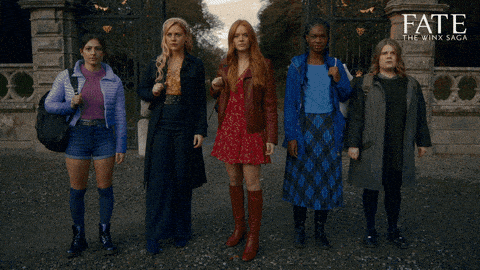
Arwen Undomiel
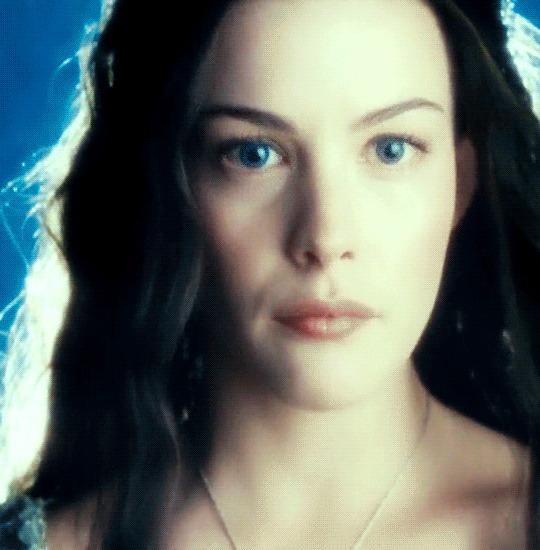
Éowyn of Rohan

Anna and Elsa of Arendelle (OUAT)

Ariel (OUAT)

Snow White (OUAT)

Robin Mills
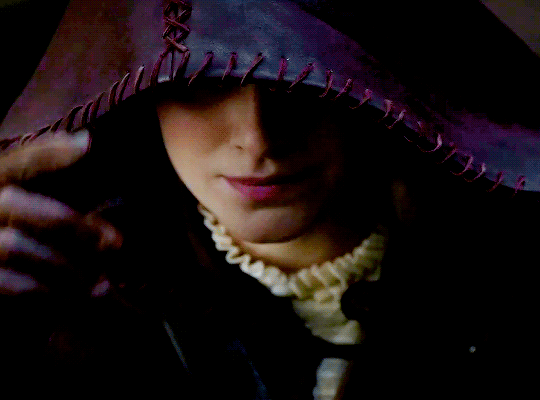
Jasmine (2019)

Marsali Frazer
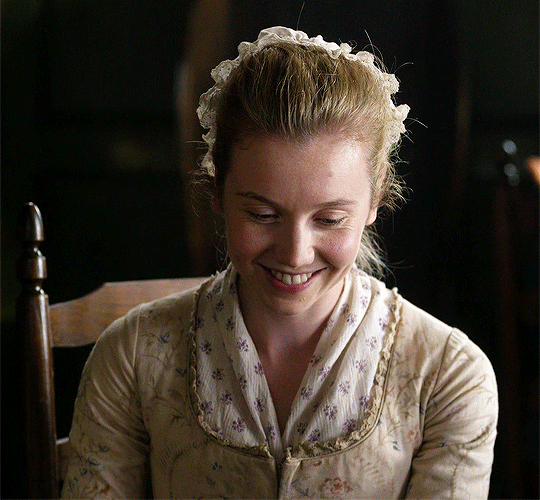
Morgana Pendragon

Elizabeth Bennet
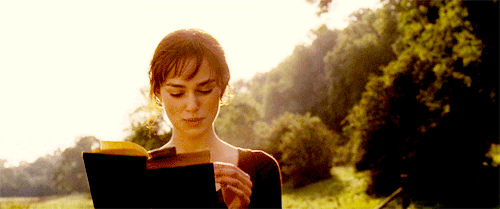
Olivia Benson

Christina Yang

Sofia Karppi

Leah Clearwater

Lizzie McGuire

Olivia Grey

#eileen lahey#charlie bradbury#bloom peters#stella of solaria#fate aisha#fate musa#terra harvey#farah dowling#arwen undomiel#eowyn of rohan#anna of arendelle#elsa of arendelle#ariel#snow white#robin mills#jasmine (2019)#marsali mackimmie fraser#morgana pendragon#elizabeth bennet#olivia benson#christina yang#leah clearwater#sofia karppi#olivia grey
21 notes
·
View notes
Note
Lizzy and Jeremy came to Armani with a plan. A plot, some may say, if they can spell it. If you're gonna fuck, at least PROVE that you could even make it past security sweetie darling.

"Hey Bradbury, nice to see you back after your week off, glad to see you're better!" Lizzy knows the main security guard at the door by name these days, she's clearly frequented this store SEVERAL times and established a wholesome connection with the staff. They like her, she's ever so polite.
With Jeremy in hand, Lizzy smiled and tugged him along through the gold and glass revolving door, into the high ceiling and spacious three floor store. It's like New Earth up in here with all the white and the gliding escalators and modern lighting fixtures.

"Jer, there's free candy in that bowl you can take whenever you feel like it."
"Bradbury? Is that a real name?"

Jeremy is being introduced to a whole new world that wouldn't usually take someone of his low profile in without following him constantly. Luckily, with Lizzy's established setting, they swept right by, into a massive emporium. He's never been here before, so he's distracted by looking around at the clean cut surroundings and extraordinary price tags - Jeremy's only ever seen the likes of those numbers on video game consoles that used to be well out of his reach. One problem you can immediately identify in here is there's nothing that seems like it will suit him apart from the suits, but the solution is that they're not really here for some fancy-dancy top that's a tear away from being a crochet blanket.

"No, I'm okay." Jeremy's too stunned to feel hungry right now, this place is bigger than he expected it to be. "What section do we hit up first? You seem to know your way around." Not a Tony aggressive accusation; Jeremy isn't ready to whisk himself off to a train station, but a general statement that he feels lost.
4 notes
·
View notes